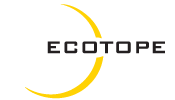Our mission.
Ecotope leads the buliding industry toward equitable, transformative, and scalable zero carbon solutions. Our work responds to the climate crisis with holistic resilient solutions that optimize efficiency and are in harmony with the future grid.
What makes us unique.
- We operate at the intersection of research, design, and policy, giving us a unique perspective on how new technologies can impact design strategies, and how policies and programs can be used to scale adoption.
- We help develop, test, and demonstrate new technologies needed to transform the market.
- We have a deep holistic understanding of energy use in buildings.
Who we are.
Ecotope is a partner-owned small business that has been at the forefront of sustainable building design consulting and engineering services in the Pacific Northwest for nearly 50 years. Founded in 1976 with a mission centered on sustainability, Ecotope has expanded its expertise to include mechanical engineering services since the mid-1990s, influencing energy-efficient designs across various projects.
At Ecotope, our approach to building design is rooted in the integration of research, design, and policy, ensuring that these essential elements are woven into every aspect of our system designs. Our sustainable engineering design philosophy is built upon decades of in-depth research into building energy usage and cutting-edge technology trends. This wealth of knowledge enables us to finely tune a building’s energy and water consumption by strategically adjusting design elements based on climate and performance data.
Our expertise spans the entire spectrum of building performance, encompassing everything from thorough site analysis and innovative engineering design to groundbreaking building technology research, building operating strategies, building performance monitoring, and impactful policy development. We are widely recognized as industry leaders in crafting high-performance, energy-efficient building designs and upgrades, serving as technical authorities in addressing building performance challenges. Our primary focus lies in developing cost-effective, efficient strategies for the decarbonization of both new and existing buildings.
Our history.
Ecotope was founded in the mid 1970’s by a group of alternative-culture architecture students from the University of Washington. Founded as a non-profit, the Ecotope Group was focused on residential energy improvements, providing a community library and interactive classes on how to retrofit houses for improved energy performance, and build solar water heaters and solar greenhouses. This information was also published in design guides and tools for calculating energy performance. Ecotope was initially funded through research grants from the Carter Administration through the National Center for Appropriate Technology (NCAT), and solar tax credits.
In 1981 the Reagan Administration cancelled solar research and tax credits, slashed funding for the NCAT, and took the solar panels off the White House. The Ecotope Group was reformed as a C-Corp, Ecotope Inc, and started doing energy efficiency research for the utility sector. At the time the Pacific Northwest was planning the development of five nuclear plants (the Washington Public Power Supply System, WPPSS). This massive project was funded by municipal bonds supported by regional utilities under the premise that electricity delivered by this system would be “too cheap to meter”.
Ecotope Inc’s first big research project was for Seattle City Light assessing whether residential energy conservation was a reasonable electricity supply alternative for the utility, rather than investing in nuclear power plants. Ecotope’s research showed that energy conservation was much less expensive and less risky electricity source than the nuclear plants, and Seattle City Light opted not to invest in WPPSS. This decision was the beginning of the end of WPPSS, which turned out to be the largest municipal bond default in history to that time.
With the collapse of WPPSS, regional utilities turned to conservation in earnest, and through the 1980’s and 1990’s Ecotope was widely engaged in providing primary technical support to virtually all of the major Pacific Northwest energy efficiency and energy code initiatives.
As energy codes took hold and houses became better insulated and glazing systems improved, the energy impacts of building thermal envelopes were well managed. Lighting and appliance efficiency programs began to influence reduction in lighting and plug loads. The characteristics of the mechanical systems became the biggest remaining driver of energy use – this was especially true in commercial buildings. Ecotope continued to develop expertise in efficient HVAC systems and increasingly began to consult directly on new construction strategies for system design.
In 1997 Ecotope built a licensed engineering team and began to offer stamped mechanical engineering services, even as they continued to support primary technical research and code and policy development in the building sector.
The engineering team started with a focus on super-efficient residential buildings then expanded into multifamily and small commercial sectors. Our work in this sector was based on long-term expertise developed by evaluating the performance of hundreds and hundreds of residential and commercial buildings to identify energy savings opportunities. Our work proved to deliver extremely efficient buildings while demonstrating innovative and cost-effective strategies for deployment of holistic building energy performance improvement. This work has been recognized by over a dozen awards from regional and national organizations like ASHRAE, USGBC, and others.
In 2016, Ecotope’s mission evolved from an explicit focus on energy efficiency to a broader focus on decarbonizing the building stock in response to the climate crisis. Our ongoing work in research, design, and policy development continued to provide the broad leadership perspective we needed to effectively research, design, and advocate for the deployment of aggressive decarbonization strategies in the building sector.
In 2020 we incorporated a focus on three performance concepts to support building sector market transformation to support climate response
— Electrify Everything
— Design for Off
— When Matters
These initiatives put Ecotope at the forefront of design strategies, research, and policymaking to support a climate responsive and resilient building sector.
